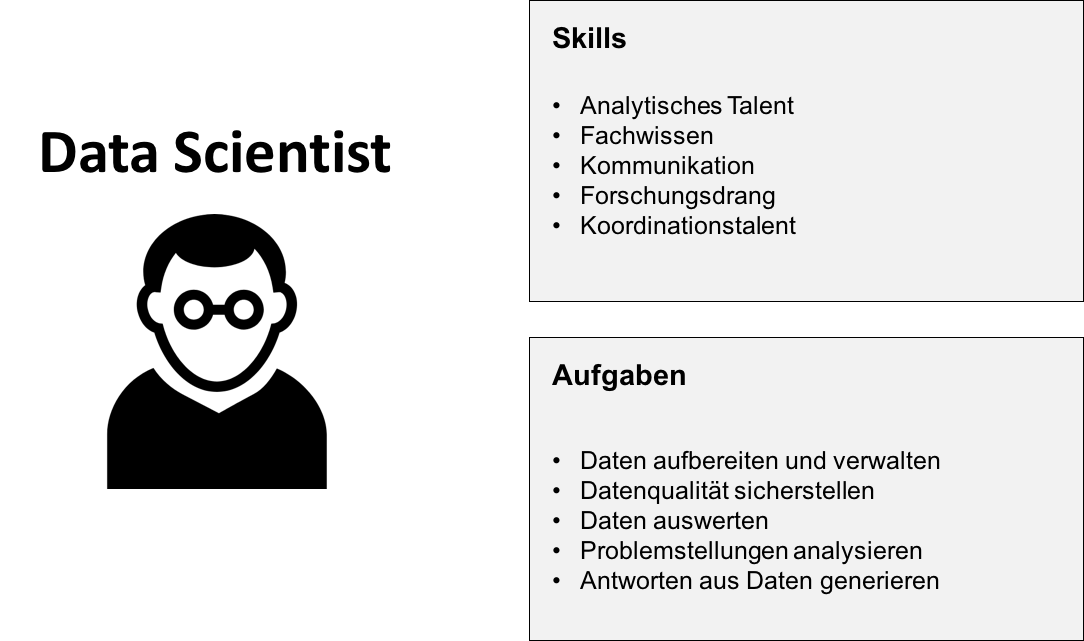The large amount of data continues to grow. In fact, it is now being said that data is the new oil. At the same time, there is also a new job description. The name of the data scientist appears more and more. So says the portal SAS : “Anyone who knows how strategically important knowledge can be drawn from large amounts of data and can also convey this has a key position in the company as a consultant for top management.”
But if you look at the job advertisements you will find a lot about it and you ask yourself: What does a data scientist do? This article is intended to provide information.
Reading tip: What is big data
What should a data scientist be able to do?
If you look at the job advertisements, a data scientist should usually be able to do the following:
- Analytical talent
- Expertise
- communication
- Urge to research
- Coordination talent
On the one hand, the scientist must recognize relationships in large amounts of data and be able to analyze them. Furthermore, he should also have business and specialist knowledge in order to understand the problems of the specialist areas. With the help of his communication skills, he can talk extensively with them and be in constant contact. His curiosity also allows him to solve difficult problems and work with hypotheses. But he is also a project manager and has to expand, manage and maintain the database.

What does a data scientist do?
There are many names for the new job profiles. The Computer week has already broken down some of it and defines it as follows:
- The (Big) Data Engineer is the master of the data supply.
- The management scientist is the mediator between the departmental worlds.
- The data scientist provides answers to analytical questions based on data.
- The data steward is responsible for monitoring data quality and integrity.
The data engineer is responsible for merging the data and knows where the data is and how it is merged. The management scientist then analyzes this data and defines the actual problems. She says to the data scientist Computer week : “The main task of the data scientist is to generate answers to analytical questions from data – with the help of analytical methods from the areas of statistics, machine learning or operations research.” The data steward monitors the data going there and ensures that it is technically correct.
So in the end there are numerous job descriptions and these terms are not always used and clearly separated. Therefore this is only used as an orientation. I don’t think that every company separates this so strictly and often everything is summarized under the umbrella of the data scientist or data analyst. The following figure shows the fields of application and provides the answer to the question: What does a data scientist do.

Conclusion: what does a data scientist do?
There are numerous terms and answers to the question: What does a data scientist do but in the end an abstract picture emerges. On the one hand, the data scientist is a scientist who solves business problems with the help of data and, on the other hand, he is a project manager who manages the database in the company.
I hope to have shed some light on the darkness with this article and I look forward to your comments on what the data scientists are doing in your environment. I have already worked with a few during my consulting time and can also see what my big data colleagues at the chair are researching. I also learned something from you and one quantitative analysis using data used in my doctorate.
Tip: Book suggestions too Big data
[werbung] Verwendete Quellen anzeigen



